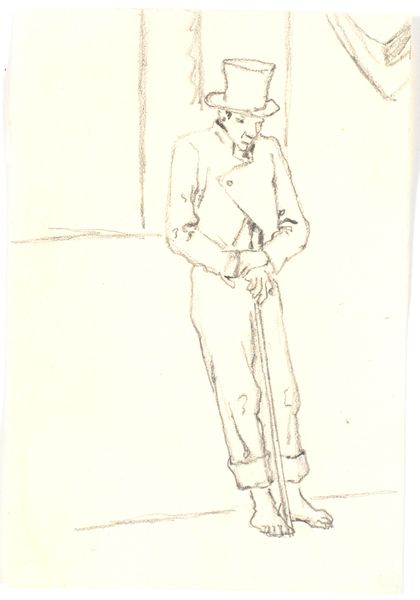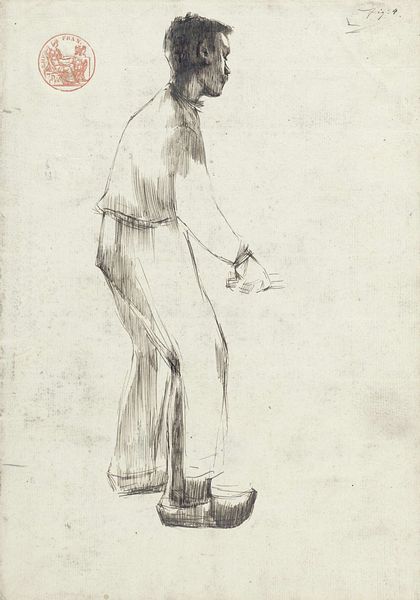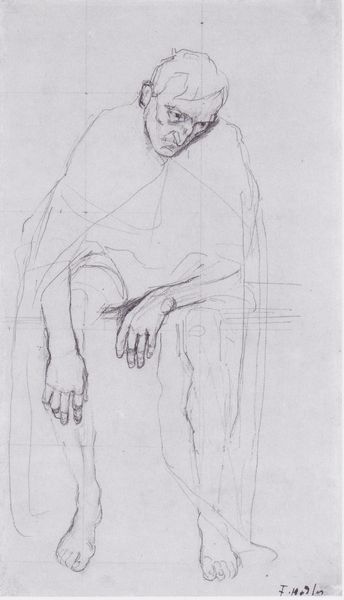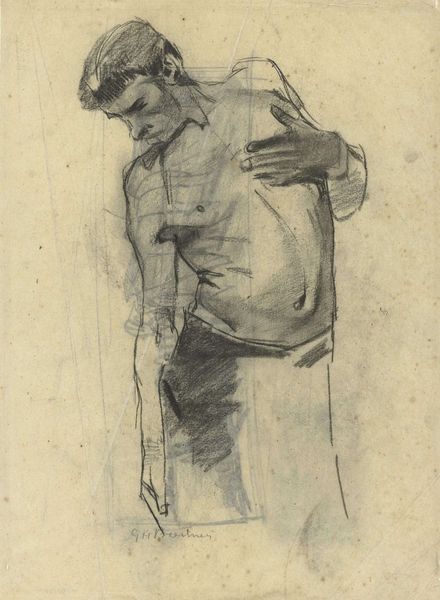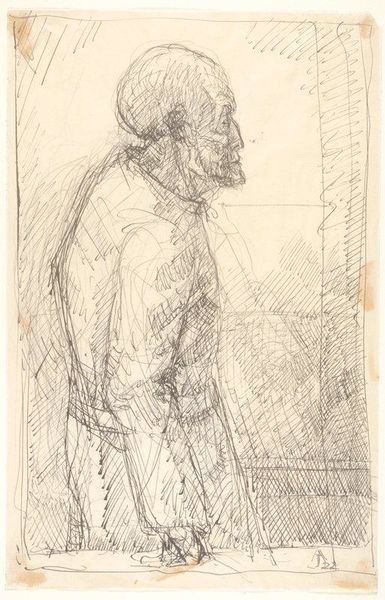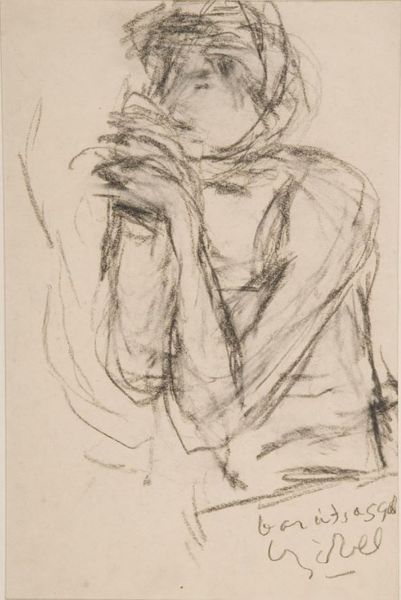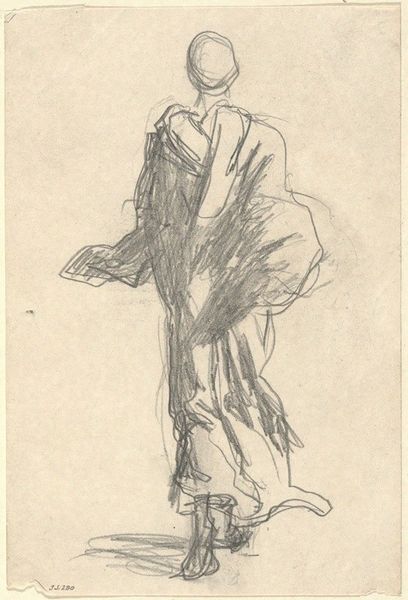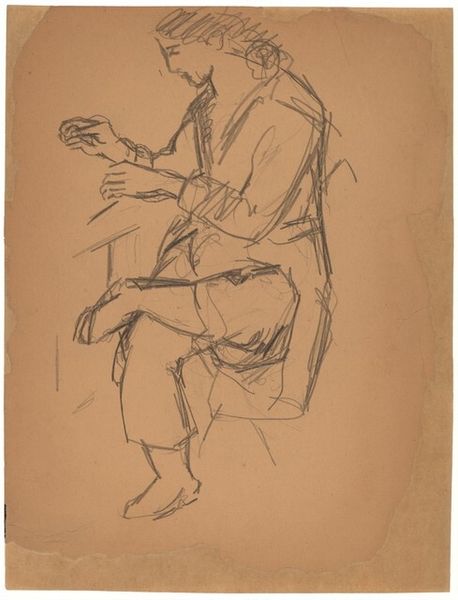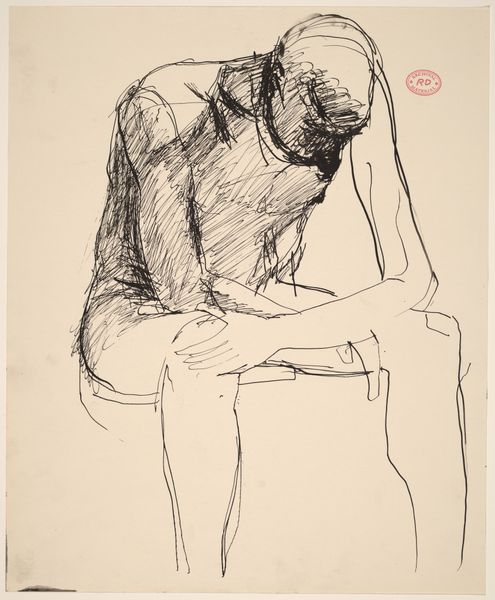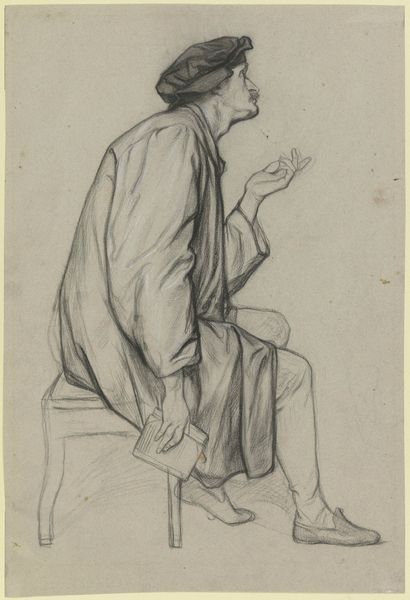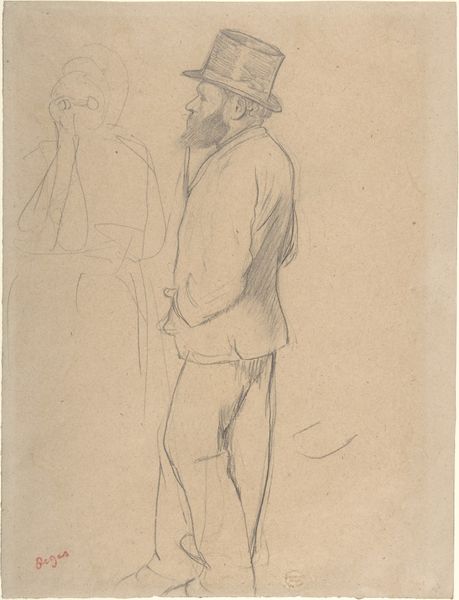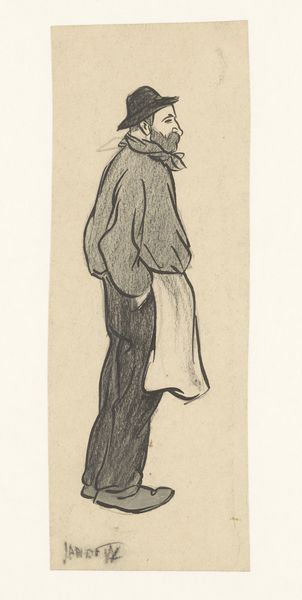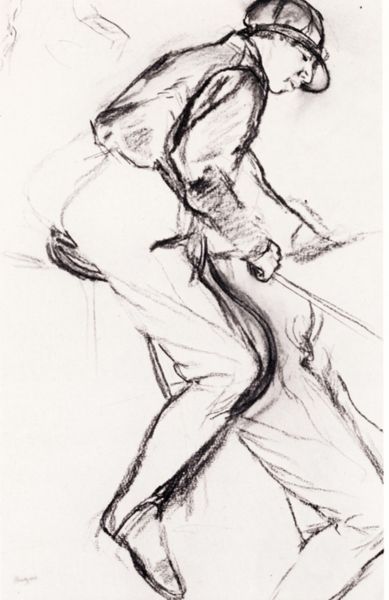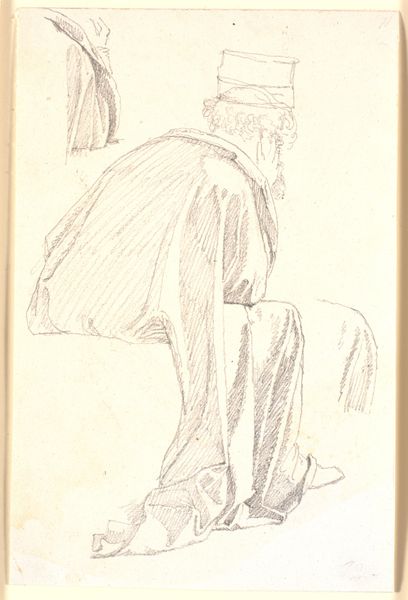
drawing, pencil
#
portrait
#
drawing
#
impressionism
#
figuration
#
pencil
#
line
#
portrait drawing
#
realism
Dimensions: 32 x 24.4 cm
Copyright: Public domain
Editor: This is Edgar Degas’s "Manet at the Races," a pencil drawing from 1870. I'm really struck by the energy of the lines – they’re so quick and suggestive, not really finished. What are your initial observations of the piece? Curator: The efficiency of line is remarkable, yes. Note how Degas implies form and volume through variations in line weight. See how darker, more insistent marks delineate the figure’s outline, especially around the head and shoulders, against the delicate hatching that suggests the fall of light. Editor: It's almost like he's captured a fleeting moment rather than creating a highly rendered portrait. Curator: Precisely. It prioritizes capturing the essence of form and space over detailed representation. Consider the structural significance of the implied lines as well: the angle of Manet's posture interacts with the open space to his left, generating a compositional tension. This juxtaposition emphasizes Manet’s introspective gaze, suggesting a contemplative or detached psychological state. Editor: It’s interesting how much emotion you can extract from such a minimal work. I hadn't noticed the implied psychological state. Curator: That effect hinges on the formal devices, not an appeal to external narratives. The austerity and elegance emerge from the controlled distribution of marks and voids, a potent synthesis. What has struck you most from our exchange? Editor: The pure power of formal composition—you've given me a completely fresh perspective, one stripped back to shape and structure! Curator: A painting’s inherent language lies in how shapes and composition interact.
Comments
No comments
Be the first to comment and join the conversation on the ultimate creative platform.
